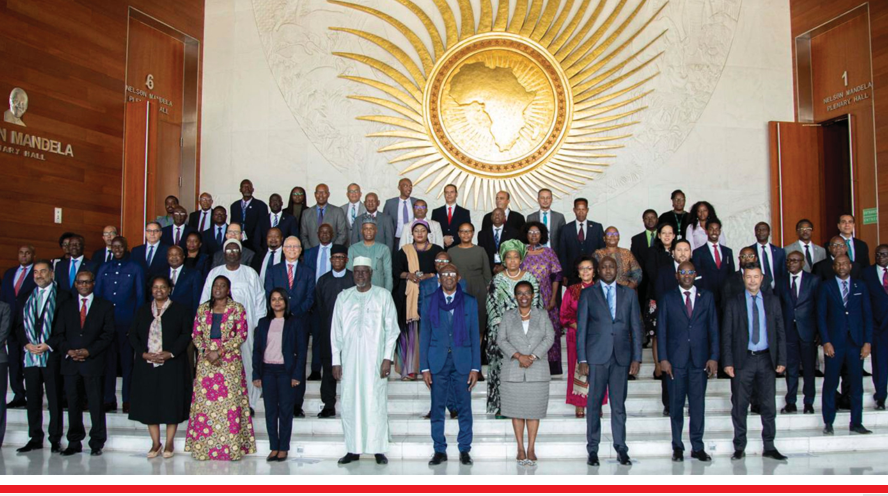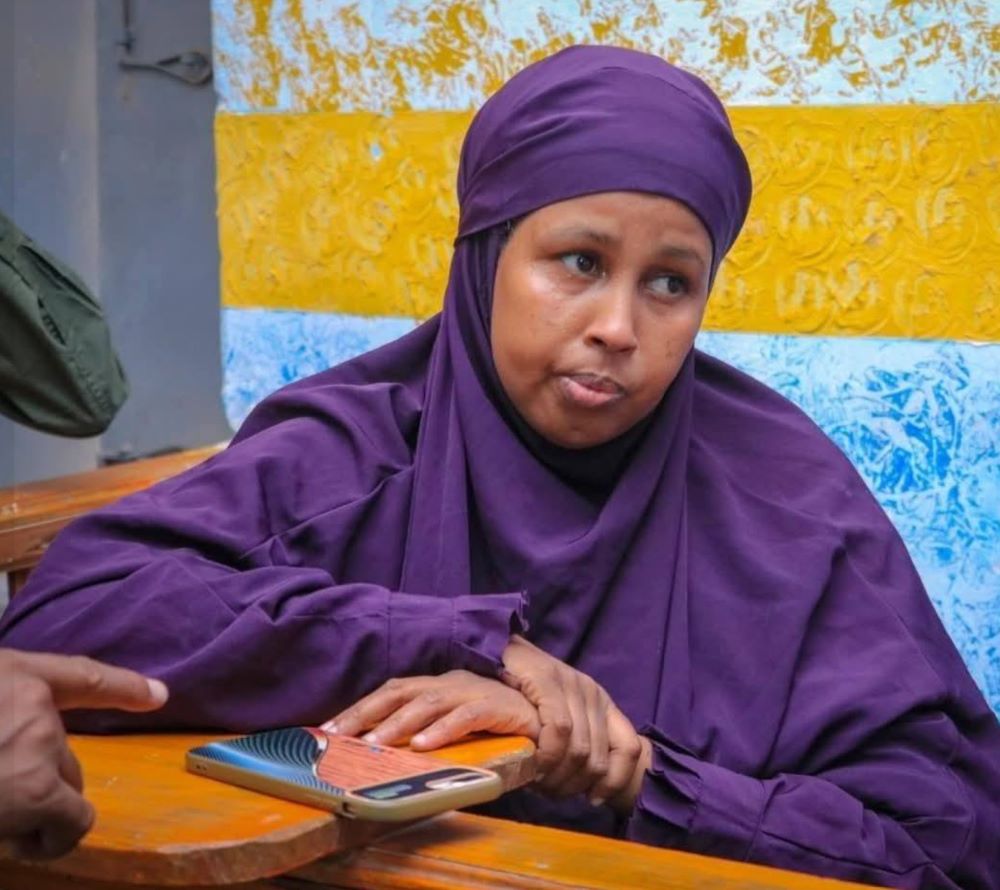News
A Call to Action: Getting Africa’s Political Leadership Right

As we witness the unfolding political dramas in Niger, Mali, and Burkina Faso, it is clear that Africa’s leadership crisis persists. The recent coups and political instability in these West African nations serve as a stark reminder of the continent’s lingering struggles with effective governance. It is time for Africa’s diaspora to take a collective stand and demand better from our leaders. The cycle of military interventions, political repression, and economic stagnation must be broken. Africa’s vast potential and rich resources are being squandered by inept and self-serving leadership. The diaspora, with its wealth of expertise and experience, must play a more active role in shaping the continent’s political trajectory. We must recognize that Africa’s problems are not solely the result of external forces, but also of internal failures. Corruption, nepotism, and tribalism have become entrenched in many African societies, stifling progress and perpetuating inequality. It is our duty to challenge these harmful practices and promote a culture of accountability, transparency, and inclusivity.
The examples of Niger, Mali, and Burkina Faso serve as a stark warning. Political instability and military intervention can have devastating consequences, including humanitarian crises, economic devastation, and regional instability. We cannot afford to stand idly by as our continent teeters on the brink of chaos. The root causes of Africa’s political woes are complex and multifaceted. Colonial legacy, Cold War meddling, and external interference have all contributed to the continent’s political underdevelopment. However, we must also acknowledge the agency and responsibility of African leaders themselves. Too often, they have prioritized personal interests over the well-being of their citizens, perpetuating a culture of impunity and entitlement.
The consequences of this leadership failure are stark. Africa remains the world’s poorest continent, despite its vast natural resources. Political instability and conflict have displaced millions, with many more facing hunger, poverty, and disease. The continent’s potential is being squandered, and its people are suffering as a result. But there is hope. Africa’s diaspora has the power to effect change. We have the expertise, resources, and networks to support democratic governance, economic development, and social progress. We must use our collective influence to demand better from our leaders and to support those who are working towards a more just and equitable Africa.
We must support democratic governance and respect for human rights from our leaders. We must support free and fair elections, independent judiciaries, and robust civil societies. We must support civil society organizations and activists fighting for transparency and accountability. These brave individuals and organizations are often on the frontlines of the struggle for democracy and human rights. We must invest in Africa’s development, creating jobs and opportunities that foster economic growth. We must support African entrepreneurs, innovators, and small businesses, rather than perpetuating the exploitative practices of foreign corporations. We must engage in diplomatic efforts to resolve conflicts and promote regional cooperation. We must support African-led initiatives for peace and security, rather than relying on external powers to impose their solutions.
We must promote African culture, his- tory, and values. We must celebrate our continent’s rich heritage and promote its contributions to global civilization. We must support African-led development initiatives, such as the African Union’s Agenda 2063 and the United Nations’ Sustainable Devel- opment Goals. We must work together to achieve these ambitious goals and create a brighter future for Africa.
In conclusion, the time for action is now. Africa’s diaspora must take a collective stand and demand better from our leaders. We must work together to create a brighter future for Africa. Let us rise to the challenge and shape the destiny of our beloved con- tinent.
News
Puntland Executes Woman for Murder of 14-Year-Old Girl

Puntland Executes Woman for Murder of 14-Year-Old Girl
Authorities in Puntland, a semi-autonomous region of Somalia, have executed a woman convicted of murdering a 14-year-old girl, in a rare case in which the death penalty was carried out against a female offender.
The convict, Hodan Mohamud Diiriye, 34, was executed by firing squad on Tuesday in Galkayo, the capital of Mudug region, after a court found her guilty of beating a teenage girl to death.
The victim, identified as Saabirin Saylaan, had been working as a domestic helper in Diiriye’s household.
Her killing in November triggered widespread protests in Galkayo and renewed calls for stronger child protection measures in the region.
Officials said the execution was carried out under qisas, an Islamic legal principle that allows the family of a murder victim to demand capital punishment instead of accepting financial compensation.
Mudug State Governor, Faysal Sheikh Ali, confirmed that members of both the victim’s family and the convict’s family were present during the execution.
A regional decree mandates the enforcement of Islamic law in murder cases, according to Puntland authorities.
Officials also said the execution marked the first time in more than a decade that a woman had been put to death under a retaliatory sentence in Puntland.
The last known execution involving a woman occurred in 2013, when 13 members of the Islamist militant group, al-Shabab, including one woman, were executed for their role in the killing of a prominent Islamic cleric, authorities said.
Investigations revealed that Saabirin, who was orphaned at a very young age after losing both parents, had been living with Diiriye’s family for about two months before her death.
Police said the teenager had suffered repeated physical abuse during that period.
Digital evidence recovered during the investigation reportedly showed a pattern of sustained violence, some of which circulated publicly ahead of the trial.
A post-mortem examination found that the victim sustained multiple injuries consistent with prolonged abuse, authorities said.
As details of the case emerged, public outrage intensified, with hundreds of women and youths staging protests across Galkayo, demanding justice for the victim and accountability for those involved.
Community leaders, activists and civil society groups have since renewed calls for stronger legal protections for children and domestic workers, who they say remain particularly vulnerable to abuse in Somalia.
The case has drawn national attention to the often-hidden problem of child abuse, especially within domestic and extended family settings, where such cases frequently go unreported.
News
Muammar Gaddafi’s Son, Saif al-Islam, Reportedly Shot Dead in Libya

Muammar Gaddafi’s Son, Saif al-Islam, Reportedly Shot Dead in Libya
Saif al-Islam Gaddafi, son of Libya’s former leader, Col. Muammar Gaddafi, has reportedly been shot dead in circumstances that remain unclear, Libyan media sources said on Tuesday.
The death of the 53-year-old politician was confirmed by the head of his political team, according to the Libyan News Agency.
However, conflicting accounts have emerged over the circumstances surrounding his death.
His lawyer told the AFP news agency that Saif al-Islam was assassinated at his residence in the city of Zintan by a “four-man commando” unit.
The lawyer did not disclose who may have been responsible for the killing.
In a separate version of events, Saif al-Islam’s sister told Libyan television that he died near Libya’s border with Algeria.
Saif al-Islam Gaddafi was long regarded as the most powerful and feared figure in Libya after his father, who ruled the country from 1969 until he was ousted and killed during a popular uprising in 2011.
Born in 1972, Saif al-Islam played a prominent role in Libya’s rapprochement with Western nations from around 2000 until the collapse of the Gaddafi regime.
Despite holding no official government position, he wielded significant influence and led high-level negotiations on behalf of his father.
These efforts included talks that culminated in Libya abandoning its nuclear weapons programme, a move that led to the lifting of international sanctions and restored diplomatic ties with Western countries.
At the time, Saif al-Islam was widely portrayed as a reformist figure and the acceptable face of a changing Libya.
Following the fall of his father’s government, Saif al-Islam was accused of playing a key role in the violent repression of anti-government protests in 2011.
He was subsequently captured and detained by a militia in Zintan, where he spent nearly six years in custody.
The International Criminal Court sought his extradition to face charges of crimes against humanity related to the suppression of the uprising.
In 2015, a court in Tripoli sentenced him to death in absentia for his alleged role in the crackdown, although the ruling was rejected in eastern Libya.
He was released in 2017 by a militia in Tobruk under an amnesty law enacted by authorities in the east of the country.
Since the overthrow of Muammar Gaddafi, Libya has remained deeply divided, with rival governments and numerous armed groups controlling different parts of the country.
Although Saif al-Islam had repeatedly denied any ambition to succeed his father, insisting that power was “not a farm to inherit,” he re-emerged on the political scene in 2021 when he announced his intention to contest the presidency.
That election was later postponed indefinitely, prolonging Libya’s political uncertainty.
As of Tuesday, Libyan authorities had yet to issue an official statement clarifying the circumstances surrounding his reported death.
News
DA Leader Steenhuisen to Step Down, Raising Fresh Uncertainty Over S’africa Coalition

DA Leader Steenhuisen to Step Down, Raising Fresh Uncertainty Over S’africa Coalition
Leader of South Africa’s Democratic Alliance (DA), John Steenhuisen, has announced that he will not seek re-election when the party holds its leadership contest in April, a decision that could unsettle the country’s fragile coalition government.
The DA, South Africa’s second-largest political party, entered into an unprecedented coalition with its long-time rival, the African National Congress (ANC), in 2024 after the ruling party lost its parliamentary majority for the first time since 1994.
Steenhuisen, who assumed leadership of the pro-business DA in 2019, currently serves as Minister of Agriculture in President Cyril Ramaphosa’s coalition government.
The 49-year-old politician had been widely expected to contest the leadership position again, but reports suggest he was compelled to abandon his bid amid a series of internal controversies within the party.
Confirming his decision at a press conference, Steenhuisen said he would devote his full attention to his ministerial responsibilities for the remainder of the administration’s tenure.
“For the rest of this term of office, I will focus all of my time and energy as Minister of Agriculture on defeating the most devastating foot and mouth disease outbreak our country has ever seen,” he said.
His decision has raised concerns about the future direction of the DA and the potential implications for the stability of the ANC-DA coalition, which has faced criticism and resistance from factions within both parties.
The DA has yet to announce a successor or provide further details on the leadership transition process.
-

 Analysis1 week ago
Analysis1 week agoThe Agony of a Columnist, by Alabidun Shuaib AbdulRahman
-

 Analysis6 days ago
Analysis6 days agoNow That Nigeria Has a U.S. Ambassador-Designate, by Boniface Ihiasota
-

 Milestone6 hours ago
Milestone6 hours agoChief Chukwuma Johnbosco and the Making of a Purpose-Driven Leader
-

 Diplomacy6 days ago
Diplomacy6 days agoCARICOM Raises Alarm Over Political Crisis in Haiti
-

 News1 week ago
News1 week agoMacron invites Chad’s Déby to Paris amid push to reset ties
-

 News1 week ago
News1 week agoTinubu Unhurt After Brief Stumble at Turkey Reception










